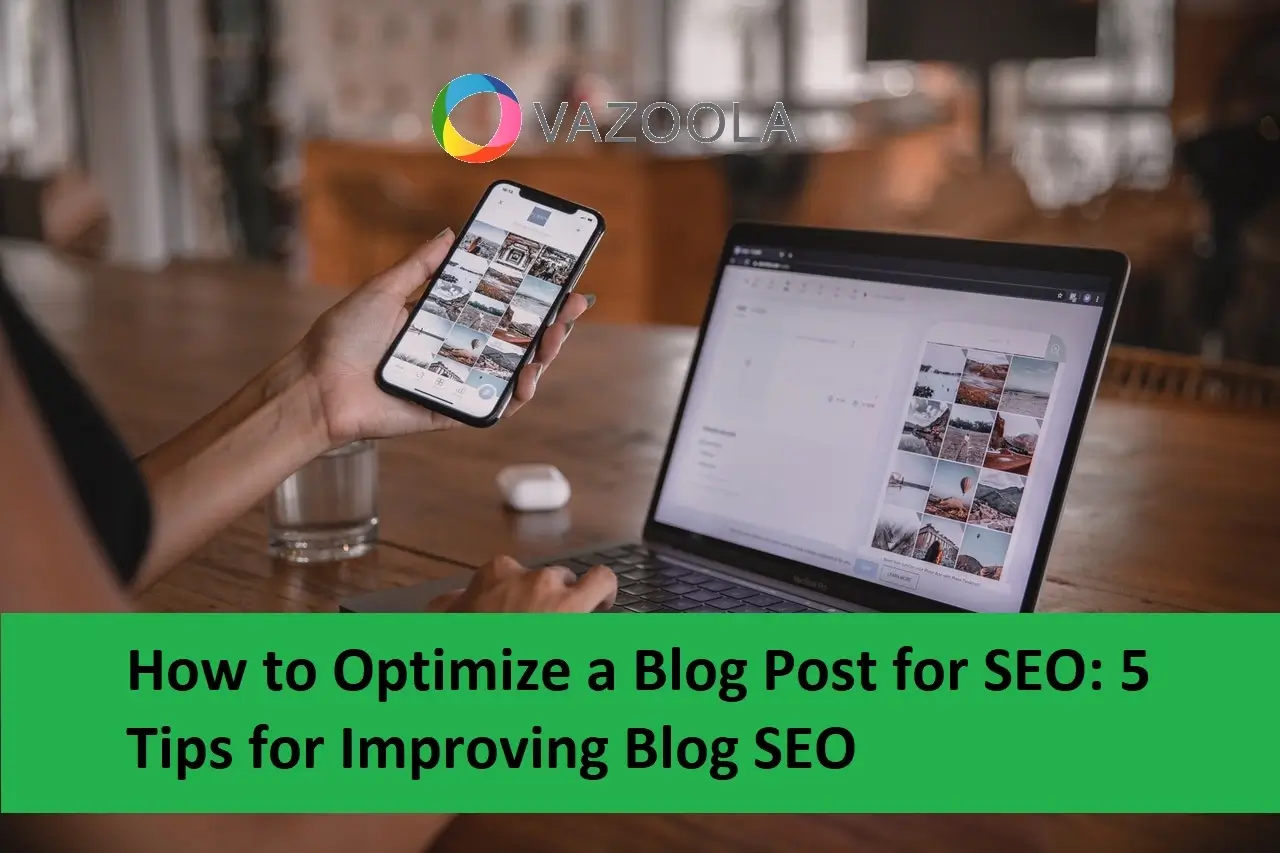How To Optimize A Blog Post For SEO: 5 Tips for Improving Blog SEO
Jan 07, 2021
Written by Casey Bjorkdahl

Casey Bjorkdahl is one of the pioneering thought leaders in the SEO community. In 2010, Casey co-founded Vazoola after working for a Digital Marketing Agency for five years in New York City. Vazoola is now one of the fastest growing and most widely recognized SEO marketing firms in the country.

Most companies understand the importance of crafting engaging content for their blog, however most blog posts are not optimized to their full SEO potential. If you want to power up your blogging efforts to maximize your performance, we've put together a list of tips and tricks on how to optimize a blog post for SEO.
Distinguish Your Brand With SEO Blog Posts
Do blogs help SEO? You bet, and here is some data to prove it.
Consistent blogging efforts can yield a 434% increase in the number of indexed pages on Google as well as a 97% increase of indexed links. Not only will Google be indexing your site more, but consistent blogging also produces an average of 67% more leads per month!
Unfortunately, less than half of all blogs ever realize these benefits, as many blog owners are unaware of what it takes to make their posts more search engine friendly. You can set yourself apart from the competition by using the blogging SEO tips we'll share.
How Do Blogs Help SEO?
Blogging in and of itself is not a ranking factor. Rather, it can contribute to rankings in the following ways:
- Regular blogging and SEO efforts signal to Google that your website is alive and offering fresh, relevant content. This gives the search engine giant more reason to keep your website on its radar and index your SEO blog pages more often.
- SEO blog writing gives you ample opportunity to target longer and more specific keywords, which are less competitive and easier to rank for.
- Engaging SEO blogs keep visitors on your site longer, which leads to better engagement and reduces your bounce rate.
- Blogging and SEO articles provide opportunities for internal linking which can help to boost other web pages on your site.
Most importantly, blogs help you connect with your audience and build authority with your readers.
How To Optimize Blog Posts for SEO
The best way to enhance the searchability of your blog posts is to create high-quality and engaging content. If you can do that on a consistent basis, you’re already ahead of the majority of your competition. Once you lay the foundation of high-quality content, it's time to implement the following five SEO blogging tips. It takes time and effort to make these changes on your own, or you can research the cost of SEO optimization and hire a company for guidance and expertise.
-
Be Thorough in Your Research
It is not uncommon for novice bloggers to write about topics they assume will be of interest to their audiences. While this tactic will give you something to write about, there is a better way to do it.
Thorough keyword research can help you discover topic ideas that people are actually searching for. Moreover, keyword research can advise your blog’s structure and flow as competitive key phrases can serve as titles, paragraph prompts, headers, and the like. Blogging for SEO is just as important as blogging for your readers, and learning how to combine both of those initiatives takes some practice.
-
Address FAQs
One of the best ways to put SEO for blogs into practice is to answer commonly asked questions within your industry. Not only is an FAQ-inspired blog guaranteed to pique your audience’s interest, but it’s an easy way to incorporate extremely specific long-tail keywords into your content.
-
Focus On Optimizing Specific Parts of Your Post
There are certain elements of a blog post that the search bots turn to first when deciding which pages to rank for particular queries: the H1, the title tag, the meta description, URL, and the headers. Incorporate the most competitive keywords and phrases in these areas and the content body. Also, it's a good idea to also sprinkle in other semantic SEO terms throughout the body for good measure.
-
Optimize Images
Users prefer an SEO blog with images, and so do the search engines! The problem is, the search engines cannot “see” images, so they rely on image alt texts. Image alt text that clearly explains and supports your content helps your images rank, which in turn helps your SEO for blog efforts in the SERPs.
-
Invest in High Quality Backlinks
Backlinks from industry leaders and trusted sources tell the search engines that your website is credible and worth ranking. Though you can garner links organically over time, a white label agency can drastically help speed up the process by creating high quality SEO links that point to your high-quality posts and pages.
Invest in SEO for Blogs
At Vazoola, we understand the importance of maintaining a well-optimized blog and spreading your brand message through guest blogging. We also understand that doing so can be confusing, time-consuming, and frustrating. We have supported thousands of brands in their efforts to enhance their digital presence, and now we want to support yours. Learn more about our high-quality link building services and how they can benefit your brand. Request a free demo today!

